Exercise 1 fill in the correct verb forms of to have to or must exercise 2 various exercises with to have to and must exercise 3 multiple choice oefening met vormen van to have to en must exercise 4 choose between don't have to and mustn't exercise 5 choose between don't have to and mustn't exercise 6 fill in don't have toThe film we are going to see is marvellous 3) You are very fat You practice sport (consejo) 4) Please, we are in the church;We use "must have", "can't have" and "might have" in the same way as the present perfect the action we are describing happened, or did not happen, in the past and is still true in the present "must have" we believe the action definitely happened "She must have left the house by now;

Gs Must Have To Should Exercises 2
Have to vs must exercises
Have to vs must exercises-Unit 3 Exercise 2 have to Unit 3 Exercise 2 have to Complete the sentences Use the correct form of have to Use contractions where possible Studentspay to go to private schools, but state schools are free Do you have to wear a uniform?Must mustn't be accompanied by an adult People must mustn't stand on this bus We must mustn't do more exercise to stay fit There




Doc Upper Intermediate Further Practice Exercises Unit 1 Exercises B Torres Academia Edu
English grammar practice exercise, intermediate level In this exercise you will practise using modal verbs to express present probability must, can't, could, may, might Exercise instructions Fill in each gap using must, can't, could, may or might There is a grammar explanation at the bottom of the page Example Someone is knocking onMust Do—Obligations Use "must" to express something that you or a person feels is necessary NOTE "have to" is conjugated as a regular verb and therefore requires an auxiliary verb in the question form or negative We have to get up early She had to work hard yesterday They will have to arrive early Does he have to go?
PAGE 94 • MODAL VERBS 43 Must/have to, mustn't/don't have to 1 We use must when the speaker thinks it is necessary or important to do an action You must go (= It is important that you go) We make negatives, questions and short answers like this You mustn't go Must you go?Modal Verbs of Obligation HAVE TO, MUST & SHOULD are modal verbs which we use for obligation and recommendations Use SHOULD to make a recommendation (ie when you think it is a good idea for someone to do something) Example You should do some grammar exercises to improve your English 2 You should drink 6 glasses of water a day Use HAVE TO for laws orMust vs have to Both Must and have to express obligation or necessity, but there are some small differences • Must expresses the speaker's feelings, whereas have to expresses, above all, an impersonal idea You must come You are obliged to come (I require that you come) You have to come You are obliged to come
Modals exercise Revising verb forms to express obligation 2 You're such a fun at parties, he invited you 3 You get offended, he may have forgotten to ring you up 4 You think there's something wrong with you It was Jerry's mistake2 I must have to I don't know go away on business, my boss wants me to visit our firm in Japan 3 Don't be silly, you must have to I don't know take these tablets four times a day !Must or have to worksheets and online exercises Language English Subject English as a Second Language (ESL) Order results Most popular first Newest first Have to vs Must Grade/level English IV by AreliGutierrez Must or Have to?




Must Vs Have To English Esl Worksheets For Distance Learning And Physical Classrooms
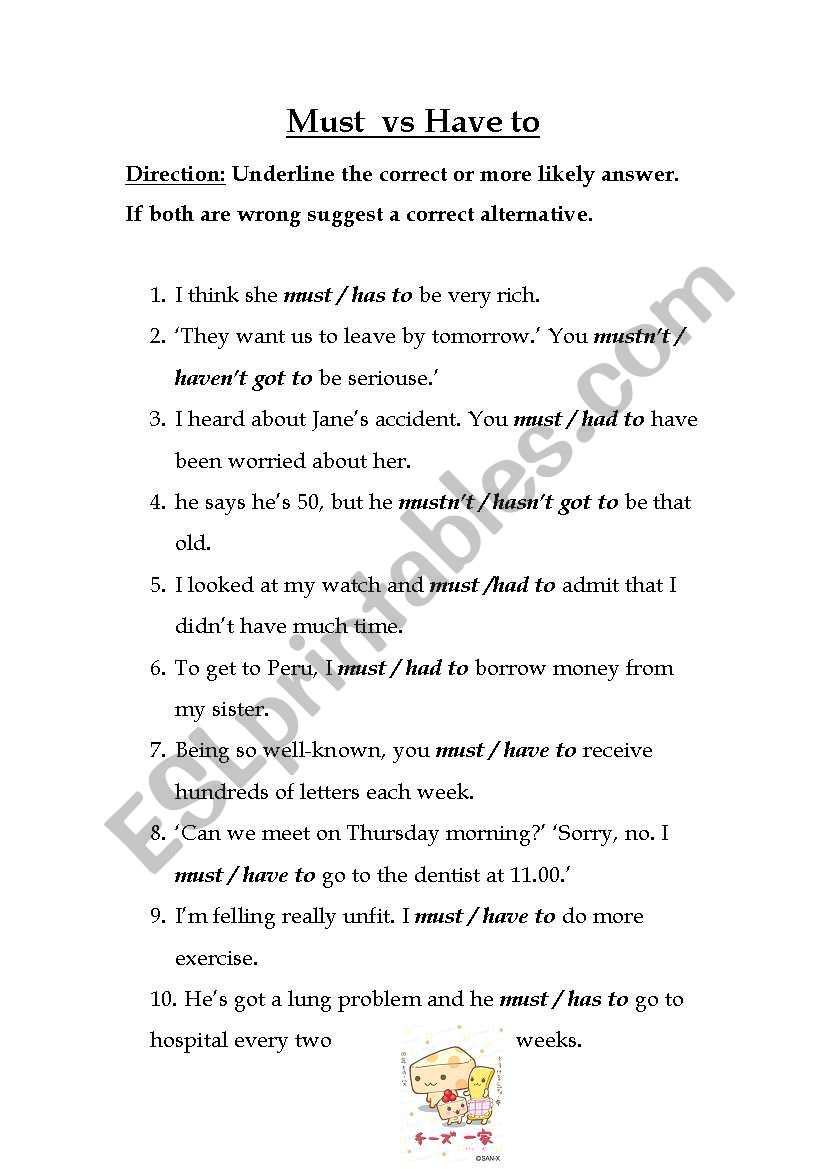



Exercise For Modals Must Vs Have To Esl Worksheet By Bambienoo
MUST and MUSTN'T (necessity) Must Mustn't (Must not) Use must when you mean 'have to' do something – and it is very important to do it Examples (1) "I must study for the test" (2) "You must wear a seatbelt" Use mustn't when you mean that it is important NOT to do something Examples (1) "You mustn't forget about theGet more Perfect English Grammar with our courses Welcome to Perfect English Grammar!I'm Seonaid and I hope you like the website Please contact me if you have any questions or commentscontact me if you have any questions or comments



Http Www Fchp Org Employers Resources Media Files Wellnessflyers Exercise3things Ashx



Must And Have To Esl Printable Worksheets And Exercises
Instructions A) For questions 1 to 5, read each sentence, and select the correct answer from the three options B) For questions 6 to 10, read each alternative, and choose an answer that best fits the meaning of the first sentence Upgrade and get a lot more done!No s Modal verbs don't add s after he/she/it He must come with us (NOT He must comes with usWrapup by having students compare answers with classmates, and then choose one or two students to write their answers on the board (1) have to;
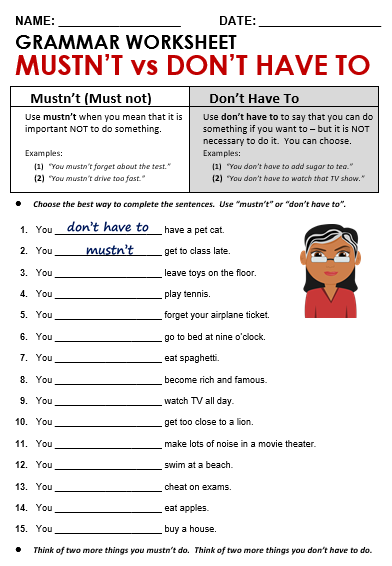



Must Necessity All Things Grammar
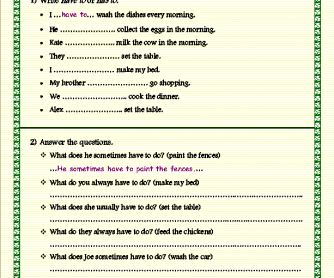



57 Free Have To Worksheets
Have to / Don't have to exercises Have to = it is important or mandatory to do something Don't have to = it is your choice, you can do it or not Example I have to go to work now Today it is Saturday, so you don't have to wake up early Warning!!By 1mada An exercise to practise MUST and MUSTN´T Students have to complete the sentences with the affirmative or negative form B&W version and 27,743 Downloads Modal verbs quiz By 1mada A multiple choice exercise to practise modals for obligation, permission, prohibition, deduction, certaintyHave to, must Quiz You can do this grammar quiz online or print it on paper It tests what you learned on the have to, must page 1 Yesterday I _____ finish my geography project must mustn't had to a) must b) mustn't c) had to 2 She will _____ wait in line like everyone else must
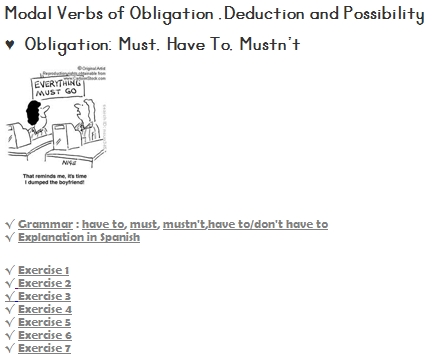



Modal Verbs Of Obligation Deduction And Possibility Blog De Cristina
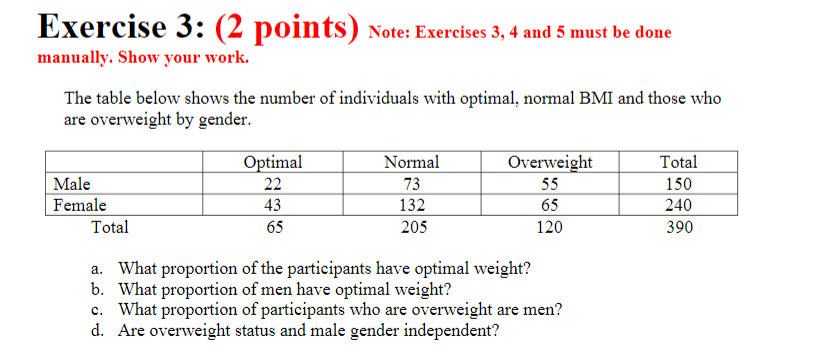



Solved Exercise 3 2 Points Note Exercises 3 4 And 5 Chegg Com
Must not do not have to Must / have to / should Modal verbs must and mustn't Necessity must / have got to Obligation, necessity and permission 1 Obligation, necessity and permission 2 Obligation, necessity and permission 3 Mustn't or needn't exercises Modals of obligationMust or should Must exercises 01 Must should mustn't shouldn't rules 02 must exercises English exercises 03 must word order examples 04 must exercises exercisesmust 05 must modal verbsexamples Should exercises 06 should modal verbs exercise 07 should modal auxiliaries word order 08 should modal auxiliaries word order 09 should modal auxiliaries word order 10 mustn´t or shouldn´t exerciseSubject Exercises 1 Modals Exercises 2 Can vs Be Able To With Tenses 3 Can vs Could Exercise 4 Can Can't Exercises 567 Mustn't vs Don't Have to Exercises 1 / 2 / 3 10 Must vs Have to / Has to Exercises 1 / 2 / 3 11 Must / Mustn't / Needn't / Have to 1213 Modals With Passive Voice 1 / 2 14 Mustn't vs Needn't vs Can't Similar
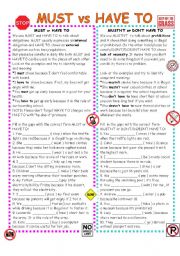



English Exercises Must Or Mustn T



1
An overview of the modal verbs should, must and have to which explains what rules you must follow when using these verbs, with examples and exercises to help you learn This online lesson is designed for intermediate level studentsSee all modal verbs exercises here Need more practice?Must expresses an opinion an inference, a conclusion, based on known details Must have expresses an opinion about an earlier (past) situation A CONCLUSION The car driver must have panicked when he saw the buses moving in on both sides The bus passengers must have heard a crunch (sound) The car passengers must have escaped out the back (No other exits



2
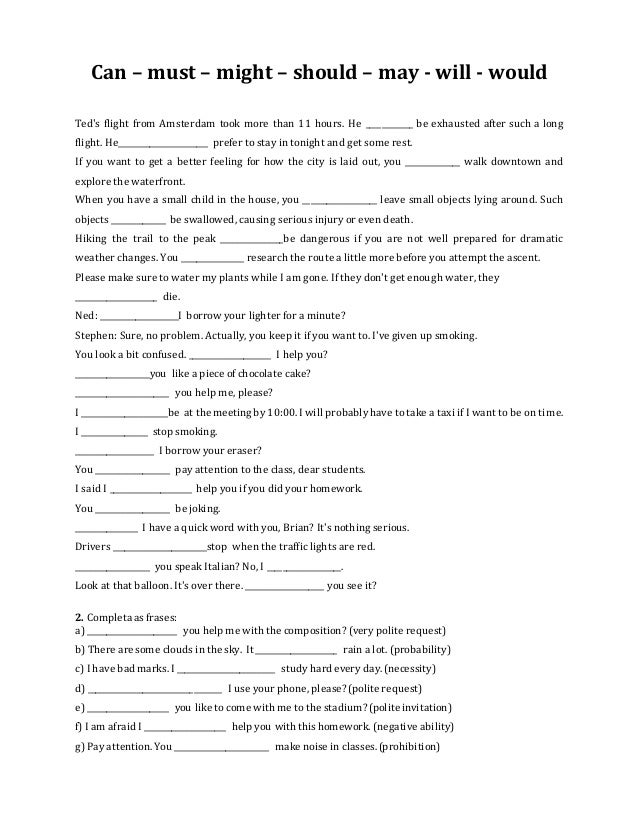



Modal Verbs Exercises
It is necessary Must is the strongest and most serious modal verb of the three and is most common in writing It is unusual to use "must" in questions I must study tonightFree English Course Should vs Must Test This should vs must test your understanding of the difference between advice and obligation Do you know when to use each modal? Must vs Have to Exercise ( / Preintermediate) A multiplechoice exercise to practise modals of obligation must / mustn't, have to / don't have
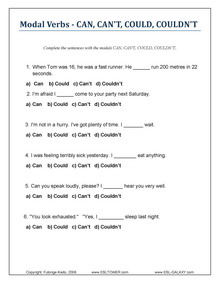



Modal Verbs Printable Modals Exercises And Worksheets




Modal Verbs Should Ought To Have To Y Must
Exercise on the modal verbs must and have to Complete the sentences using the words listed in the box below, then click the "Check" button to check your answersYou stop making that unpleasant noise (A father to his son) 5) If you want to watch TV, first you finish your homework 6) If I want to buy a new house I get a mortgage (AYou can find out below Good luck!
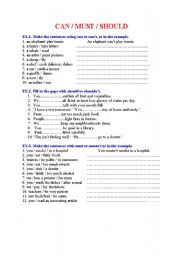



Can Should Must Exercises On Modal Verbs Esl Worksheet By Ania Z




57 Free Have To Worksheets
Welcome to the must subsection of modal verbs where you can find 81 Must worksheets to help your students learn the proper uses of this word Here are two examples of worksheets from this section that you might want to use in class The first worksheet has students practice forming positive and negative sentences with must by looking at someShould Must Quiz Time limit 0 QuizsummaryObjective At the end of this topic you will Use the modal verbs, should and ought to to express advice and suggestion in formal way, and have to and must to express obligation, compromise or need in affirmative, negative or interrogative forms, through different customary contexts to exchange personal information



1




Gs Must Have To Should Exercises 2
Have to, don't have to, must, mustn't (1) Type the correct answer into the box Use contractions where possible Youhave a passport if you want to travel abroad Youarrive late Youstand on the plane There are seats for everyone Have them make a list of five things that they have to do every day Introduce the grammar by having the students take a look at the grammar sheet below Discuss the differences between 'have to' and 'must' in the positive form Make sure to point out that 'have to' is used for daily routines while 'must' is used for strong personal obligationSubject Exercises 1 Modals Exercises 2 Can vs Be Able To With Tenses 3 Can vs Could Exercise 4 Can Can't Exercises 567 Mustn't vs Don't Have to Exercises 1 / 2 / 3 10 Must vs Have to / Has to Exercises 1 / 2 / 3 11 Must / Mustn't / Needn't / Have to 1213 Modals With Passive Voice 1 / 2 14 Mustn't vs Needn't vs Can't Similar



Q Tbn And9gctytawppclep8lhre8ykx1oq2 8m4ti5nd5pnf3xo3cc5t2uzfe Usqp Cau
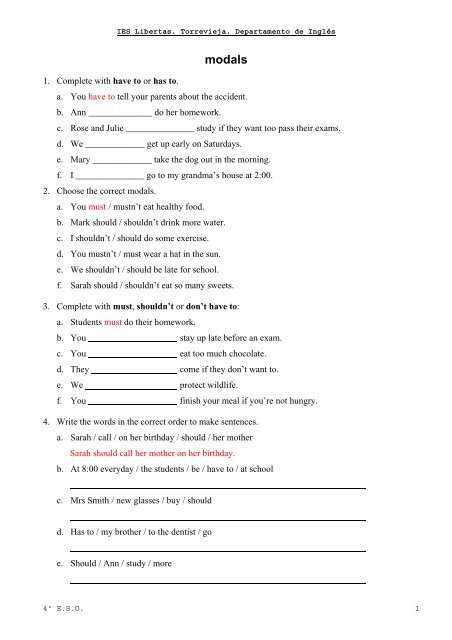



Modals Exercises Ies Num 1 Libertas
1) You speak to your brother and try to solve that problem 2) You come with us to the cinema;Must or have to Many learners of English are indifferently using MUST and/ or HAVE TO, thinking that the two forms are perfectly equivalent Yet, most of the time, they express subtle nuances that learners should know and use in order to communicate effectively~ Yes, I must 2 We use have to to talk about an action that is necessary because of rules or laws,
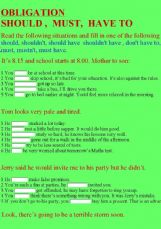



Esl English Exercises Obligation Should Must Have To




Pin On Cosas Que Ponerse
English Grammar Use Of Must/Have To/Should Trivia Quiz!(2) Does / have to, etc Correct and dicuss any mistakes (A dd 5 to 10 minutes) Grammar Discussion Have to Student 'A' version and Student 'B' version, each with 10 different discussion questionsModals exercise It´s an easy OE for students to practise the use of the modals CAN, CAN´T, MUST and MUSTN´T There are four activities with different levels of difficulty and a short grammar explanation I hope you find it useful




Must Mustn T Have To Don T Have To English Esl Worksheets For Distance Learning And Physical Classrooms




Modal Verbs Must Should Have To Worksheet
The modal verbs "must," "have to" and "have got to" show that something is not optional;Learn English Mark Kulek ESL Use Must for personal duties and Have To for obligations More Practice https//youtube/M6zvuKb4ChU Everyday activitiesLos verbos modales "can't have" / "must have" / "might have" Verb conjugation practice Contenido de suscripción Los verbos modales must, have to, should, should have Modals must, have to, should, should have passive Dictation exercises focus on grammar Contenido de suscripción Los verbos modales must, have to, should, should have




Solved Need Help Solving These Exercises 1 Use Mysql Wor
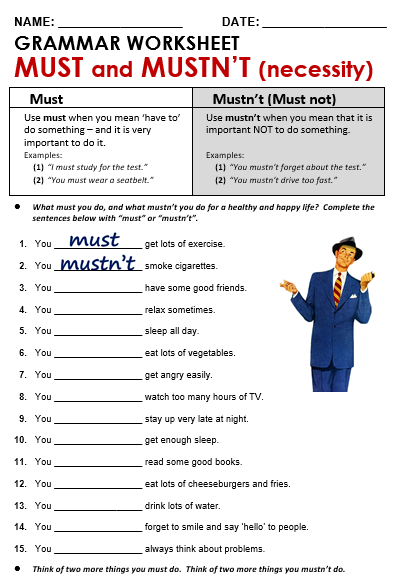



Must Necessity All Things Grammar
Last summer, when I went to Greece I rent a car to visit all the ruins 21) The Formula 1 pilot be very accurate to drive so fast 22) If you are assaulted in the street, you not show any resistance (enfático) 23) In Spain you always wear a helmet when you ride a motorbike Have to and must are being looked at together because of the interchangeability when used for certain functions and the confusion caused when they cannot be interchanged for others Have to 'Have to' is used to express certainty, necessity, and obligation This has to be the right place We are not lostOnline exercise on the use of 'must' vs 'have to' for learners of English



Have To And Has To Esl Grammar Exercise Worksheet
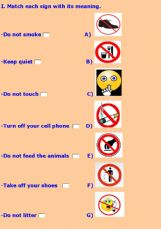



English Exercises Must Or Have To
Must/mustn't, have to/don't have to – form Download fullsize image from must/mustn't Use must infinitive without to Must is a modal verb, and modal verbs are followed by infinitive without to I must go to the doctor (NOT I must to go to the doctor;EnglishClub Learn English Grammar Verbs Modals have to, must have to, must Have to is NOT an auxiliary verb (it uses the verb have as a main verb) We include have to here for convenience Must is a modal auxiliary verb In this lesson we look at have to, must and must not, followed by a quiz to check your understanding have to for objective obligationI must go to the doctor I must get up early tomorrow You mustn't call me before 8 It is used to describe something that the speaker thinks is necessary to do You must eat less candy I must try to do more exercise We can also use must to express strong advice You must see the new film;




Must Have To Exercises




How To Teach May Might Could Must Off2class
Don't have to = Mustn't Mustn't=it is prohibited, you cannot do itID Language English School subject English as a Second Language (ESL) Grade/level PreIntermediate Age 1015 Main content Must or have to Other contents Add to my workbooks (21) Download file pdf Add to Google Classroom Add to Microsoft TeamsIt's nearly 11 o'clock"




Pin On Gramatica Inglesa




Must Have To Should Exercises 2 Bsga
We use have to / must / should infinitive to talk about obligation, things that are necessary to do, or to give advice about things that are a good idea to do Mus t and have to are both used for obligation and are often quite similar They are both followed by the infinitive I must go now / I have to go now



Fadeibuoni Files Wordpress Com 17 03 Musthaveto2 Pdf




Must Have To Had To Exercises Exercise Poster
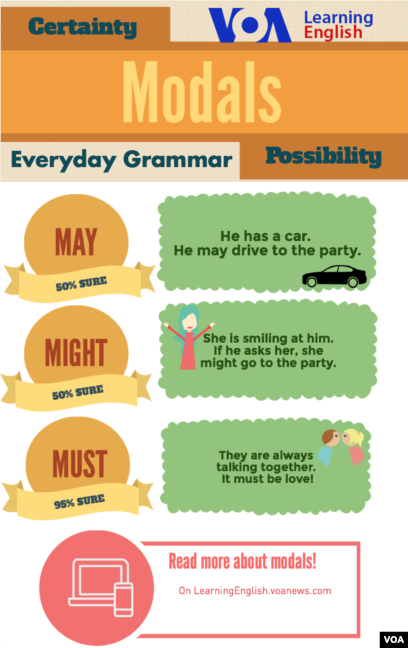



May Might Must Modals Of Certainty
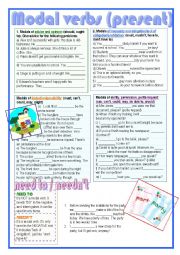



English Exercises Obligation Should Must Have To
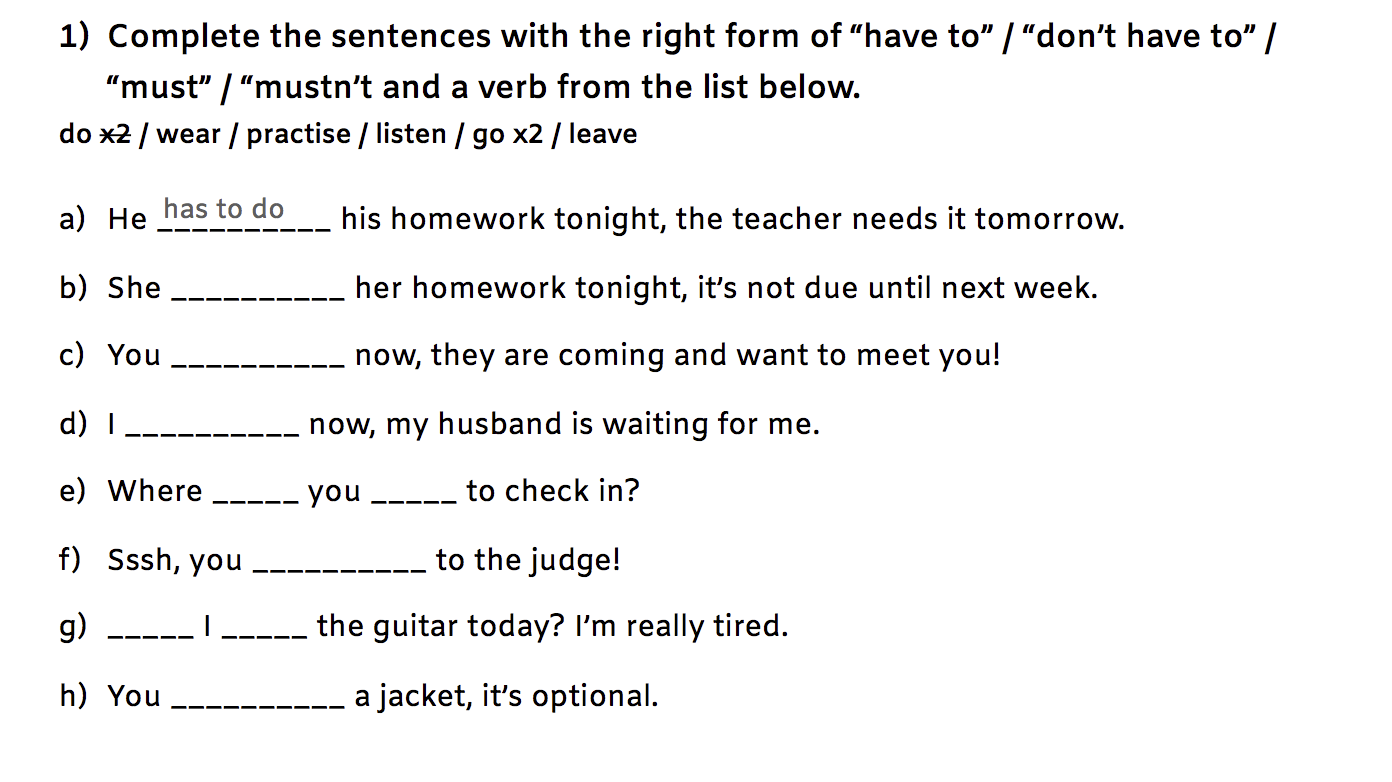



57 Free Have To Worksheets




Sleam Upper Intermediate Grammar Exercises By Jjonestemp Issuu



Benefits Of The Exercise And Proper Fitness Equipment Selection Authorstream




Possibility Request And Permission May Might Can Could Test A1 Level Exercises



Www Edu Xunta Es Espazoabalar Sites Espazoabalar Files Datos Contido Unidade13 Arquivos Actividades Pdf




Solved 10 Exercises Exercise 9 1 A Satellite Of Mars Ca Chegg Com




English Esl Must Or Have To Obligation Worksheets Most Downloaded 132 Results



In Plain English Should Must Or Have To




Must Mustn T Have To Don T Have To Ppt Video Online Download




Must Mustn T Have To Don T Have To English Esl Worksheets For Distance Learning And Physical Classrooms



Speculation And Deduction Modal Verbs




Must And Have To Modal Verbs Exercises
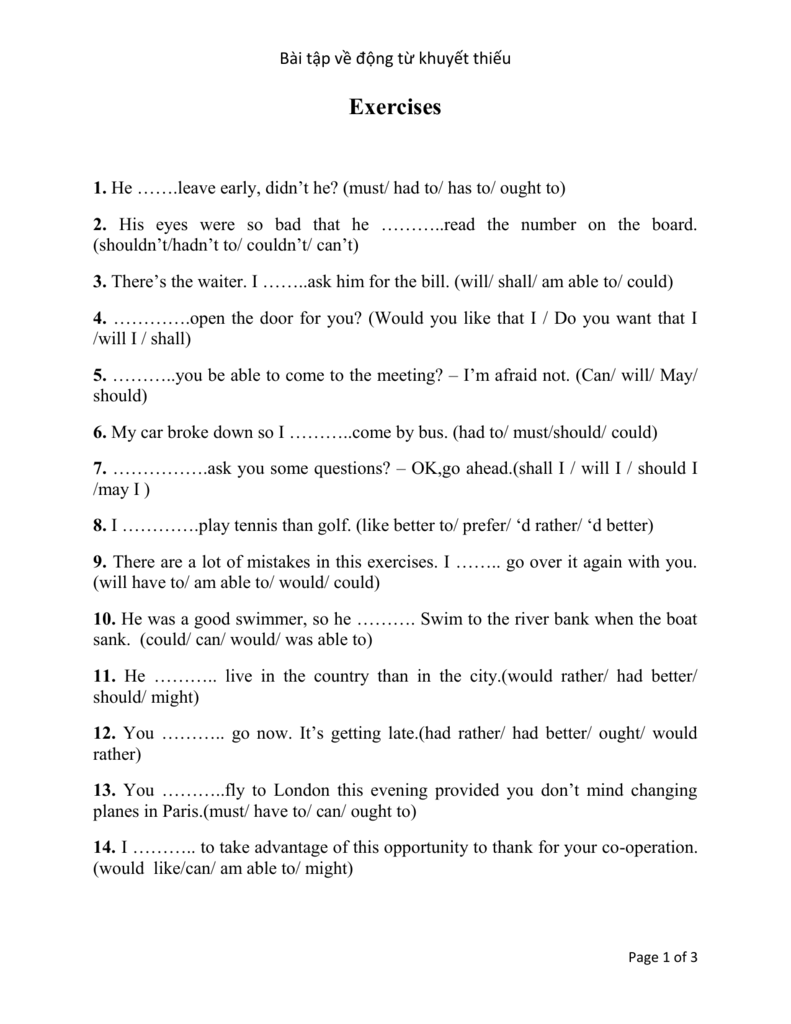



Exercises




Grammar Must Have To Should Worksheet




14 Grammar Rules Ideas Grammar Rules Grammar Grammar Worksheets




Modal Verbs Must Have To Should English Esl Worksheets For Distance Learning And Physical Classrooms




Must Mustn T Have To Don T Have To Grammar Exercises English Exercises Grammar Activities




Doc Upper Intermediate Further Practice Exercises Unit 1 Exercises B Torres Academia Edu




Past Modal Verbs Of Deduction Exercise Con Solucion Syntax Grammar




Have To Must And Should For Obligation And Advice Learnenglish Teens British Council
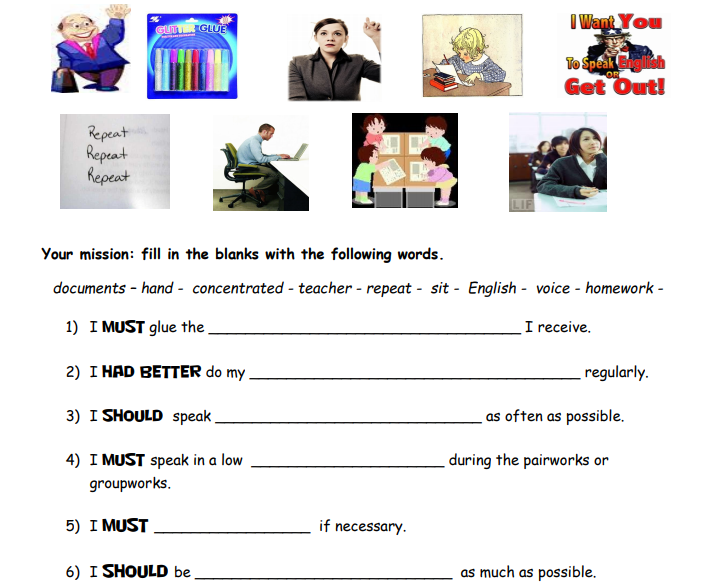



81 Free Must Worksheets



English Worksheets Must Mustn T Worksheets Page 1




How To Teach May Might Could Must Off2class




Gs Must Have To Should Exercises 80
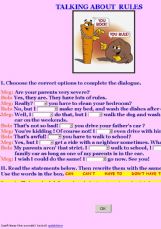



English Exercises Must Or Have To
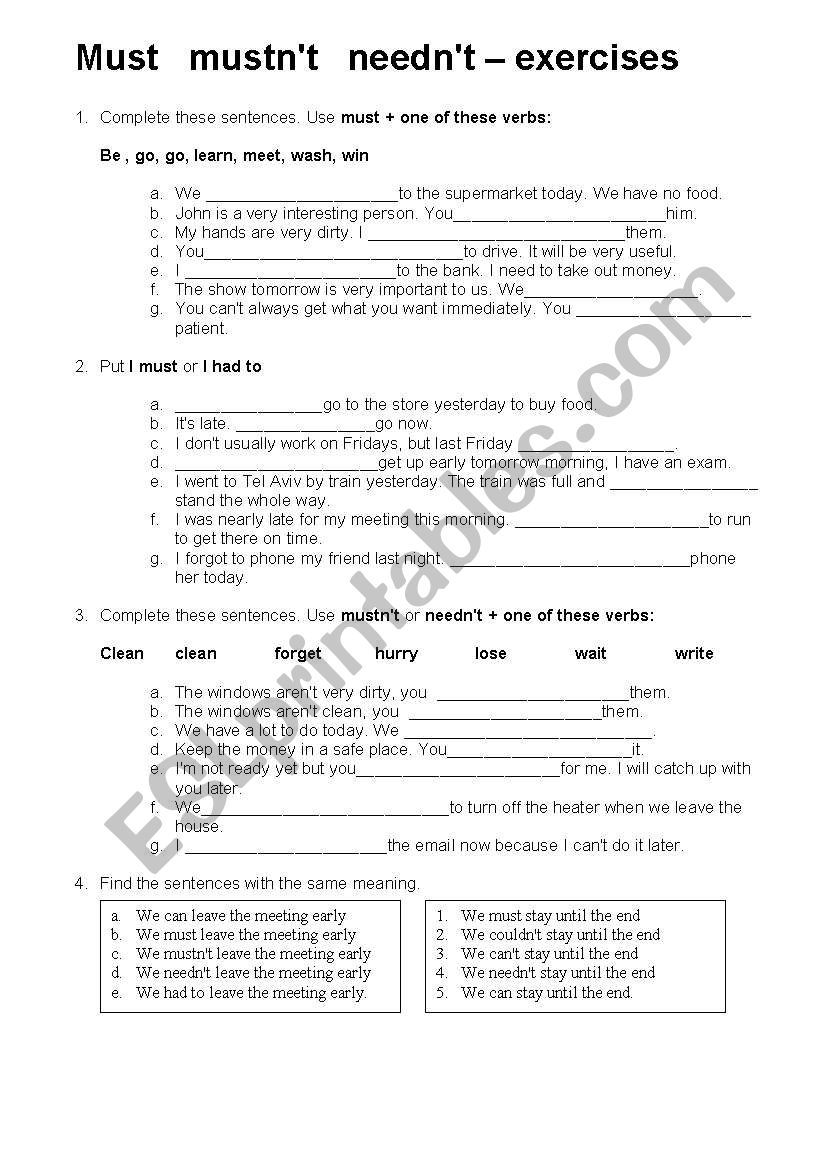



Modals Must Mustn T Needn T Exercises Esl Worksheet By Woodge78
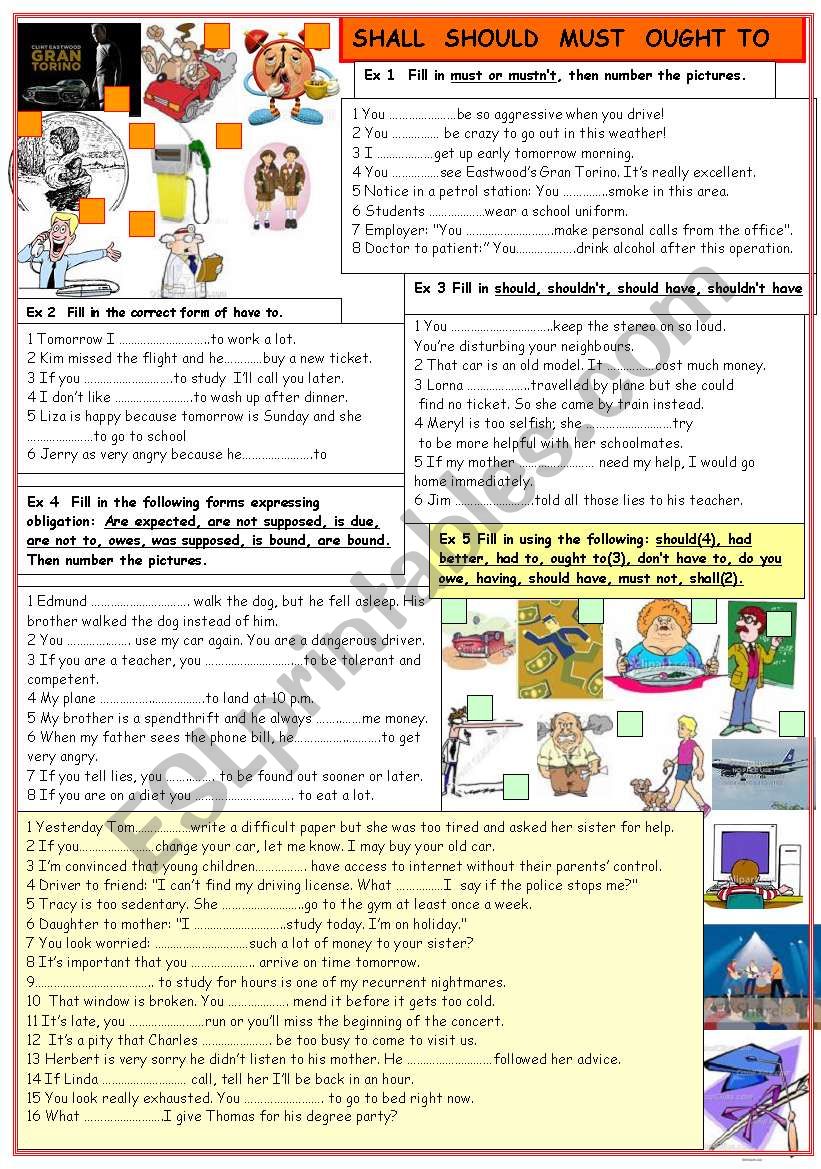



Shall Should Ought To Must Esl Worksheet By Lilianarota




Should Have Could Have Would Have Exercises Pdf




Pin On Invățare




Must Have Might Have Can T Have Exercises Exercise Poster




Must Have To And Should English Esl Powerpoints For Distance Learning And Physical Classrooms
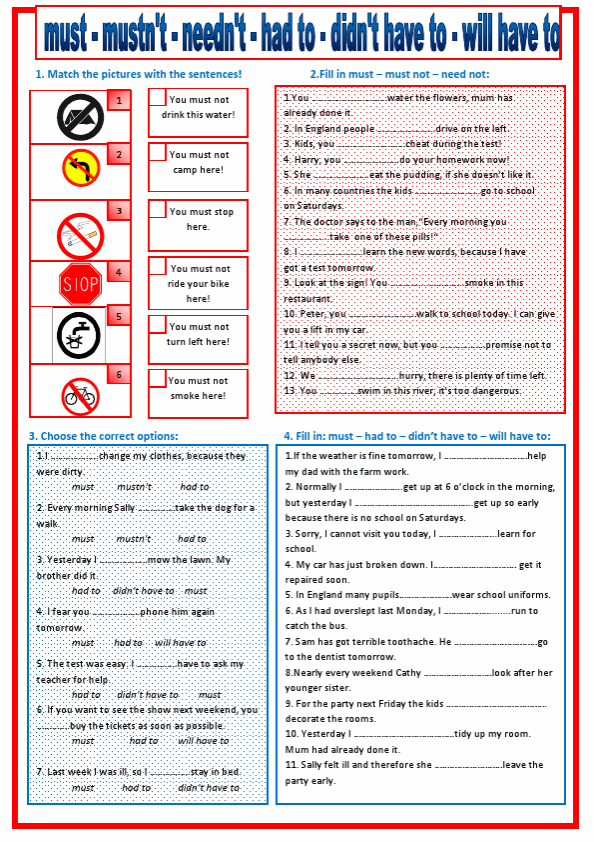



Must Have To Exercises Free Printable Must Have To Esl Worksheets
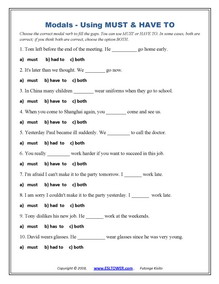



Modal Verbs Printable Modals Exercises And Worksheets




Modal Verbs Must Mustn T Should Shouldn T Don T Have To Worksheet




Must Or Have To Worksheets And Online Exercises




Must Mustn T Have To Don T Have To Ppt Video Online Download



In Plain English Should Must Or Have To




3 Must Have Journal Exercises For Anxiety Sagesse Deane
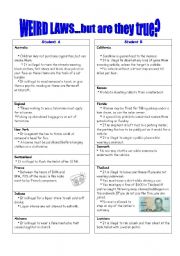



English Exercises Can Or Must




Test English Prepare For Your English Exam




Must And Have To
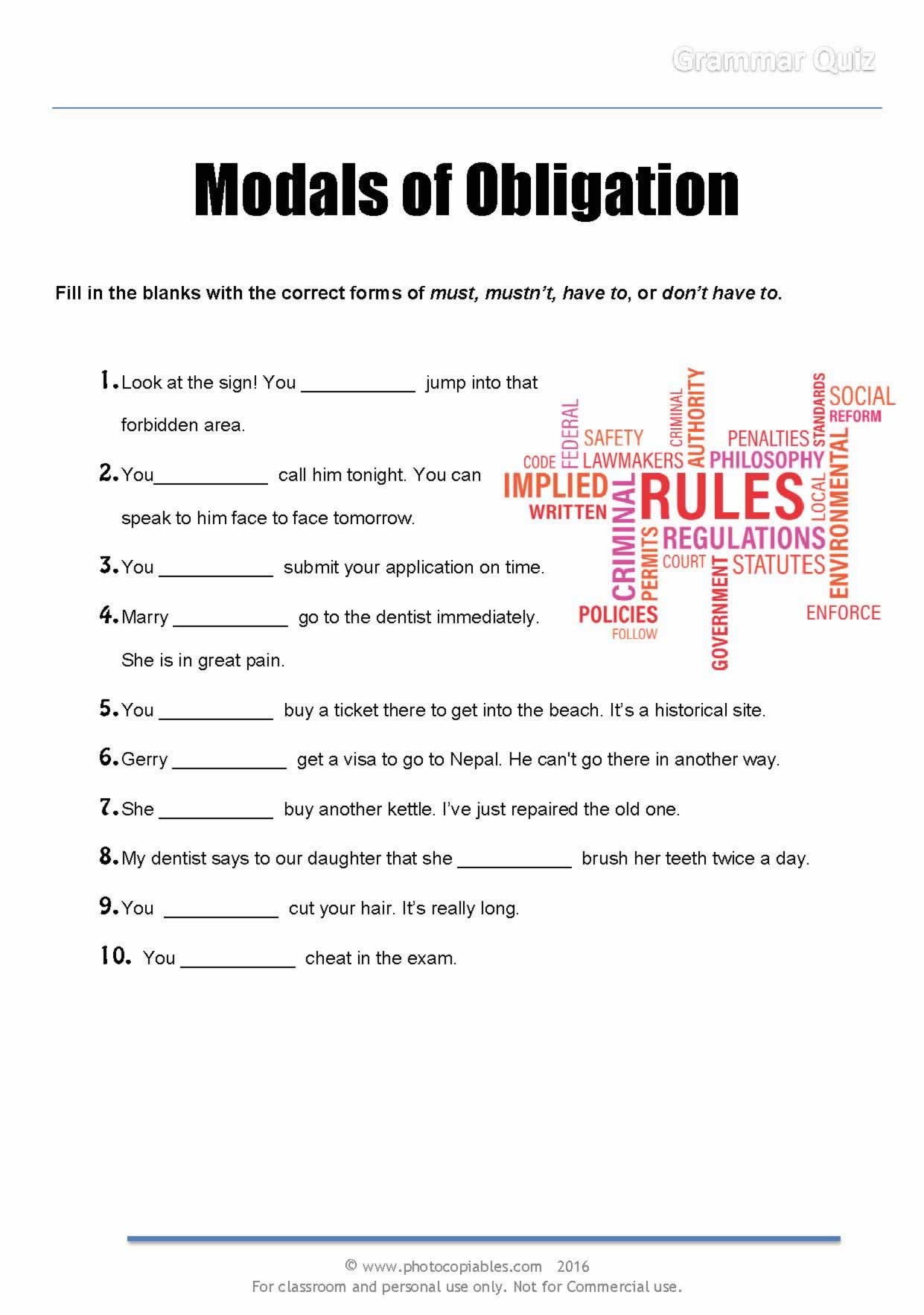



Modals Of Obligation Online Quiz Photocopiables




Pin On Esl Worksheets Of The Day



1
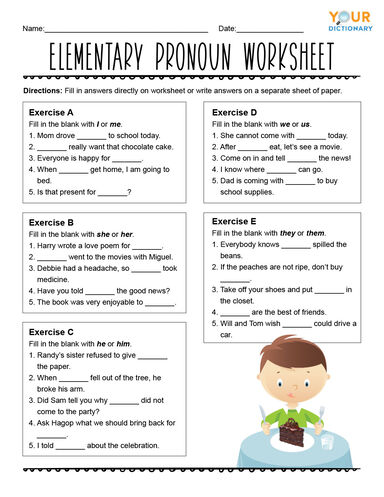



Pronoun Worksheets For Practice And Review
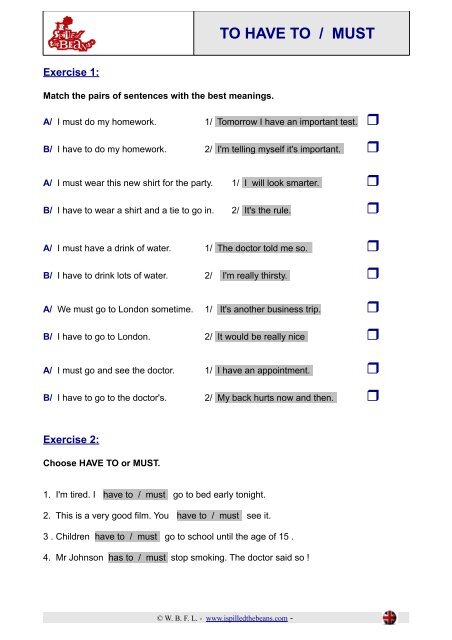



To Have To Must I Spilled The Beans
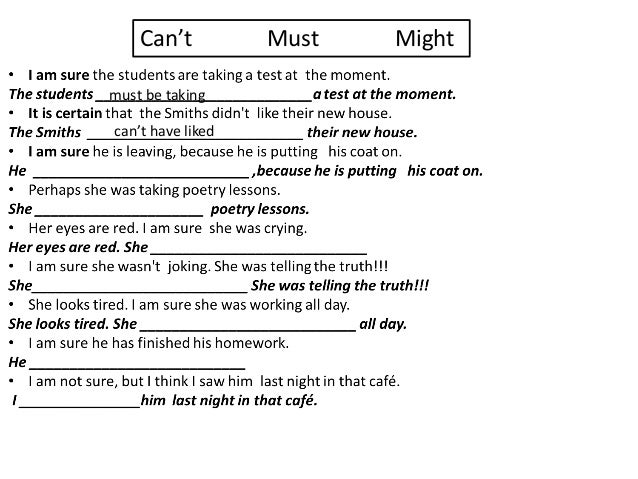



Present And Past Infinitive Exercise For Esl Students




Modals Can May Must Worksheet
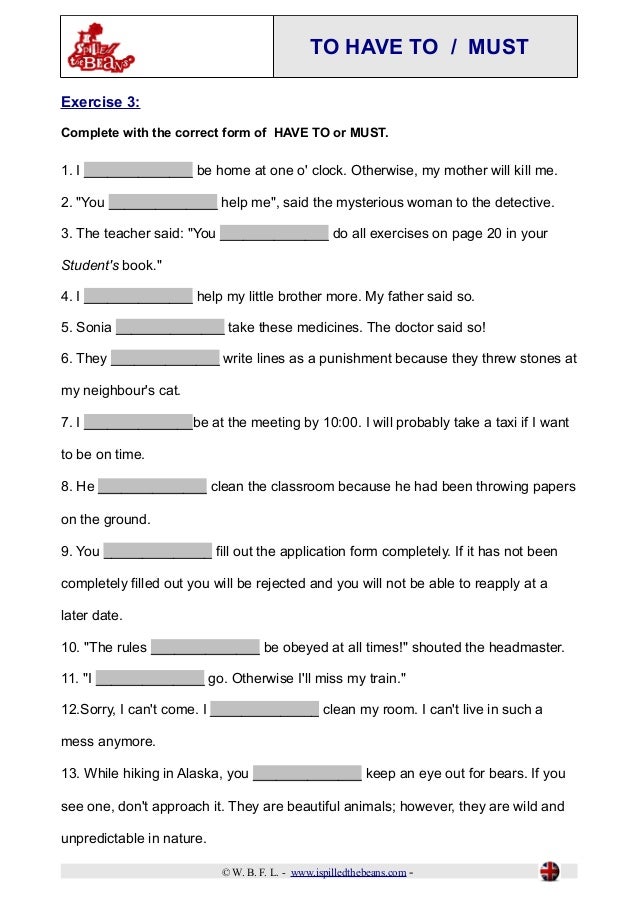



Have To And Must
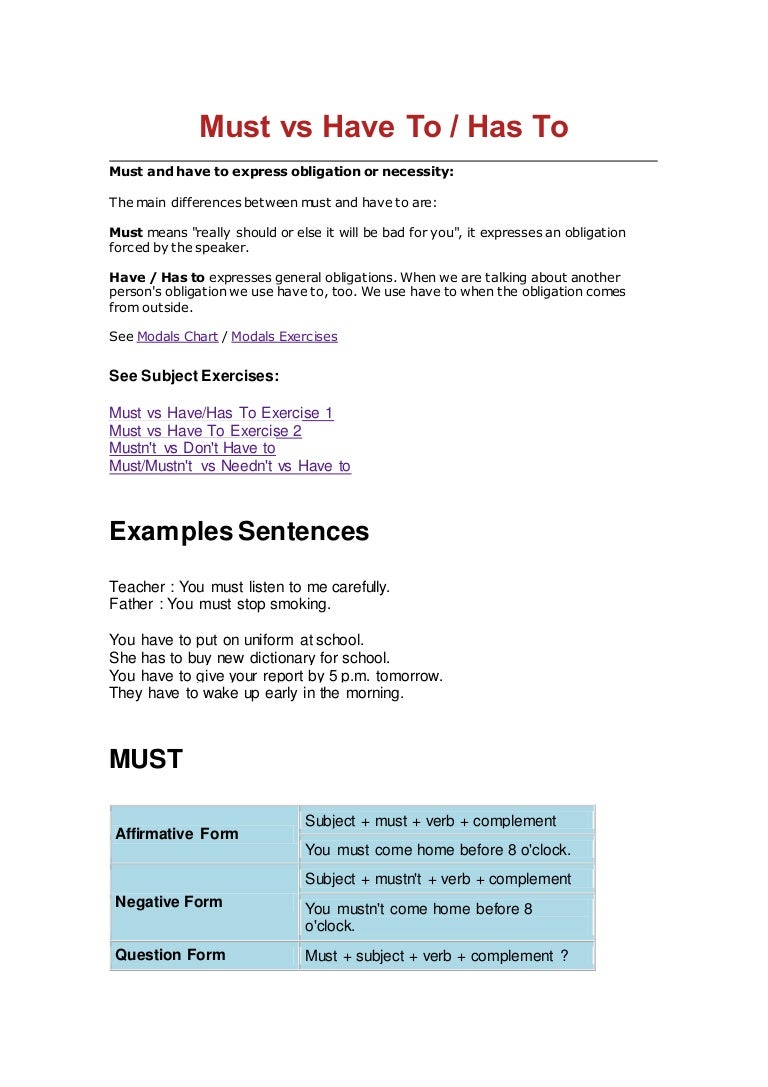



Must Vs Have To Grammar




How To Teach May Might Could Must Off2class




Should Must And Have To English Esl Worksheets For Distance Learning And Physical Classrooms




Must And Have To Exercises
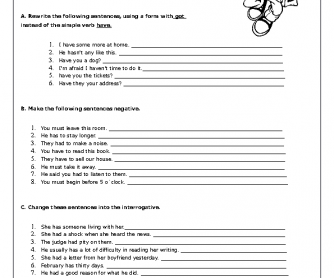



81 Free Must Worksheets
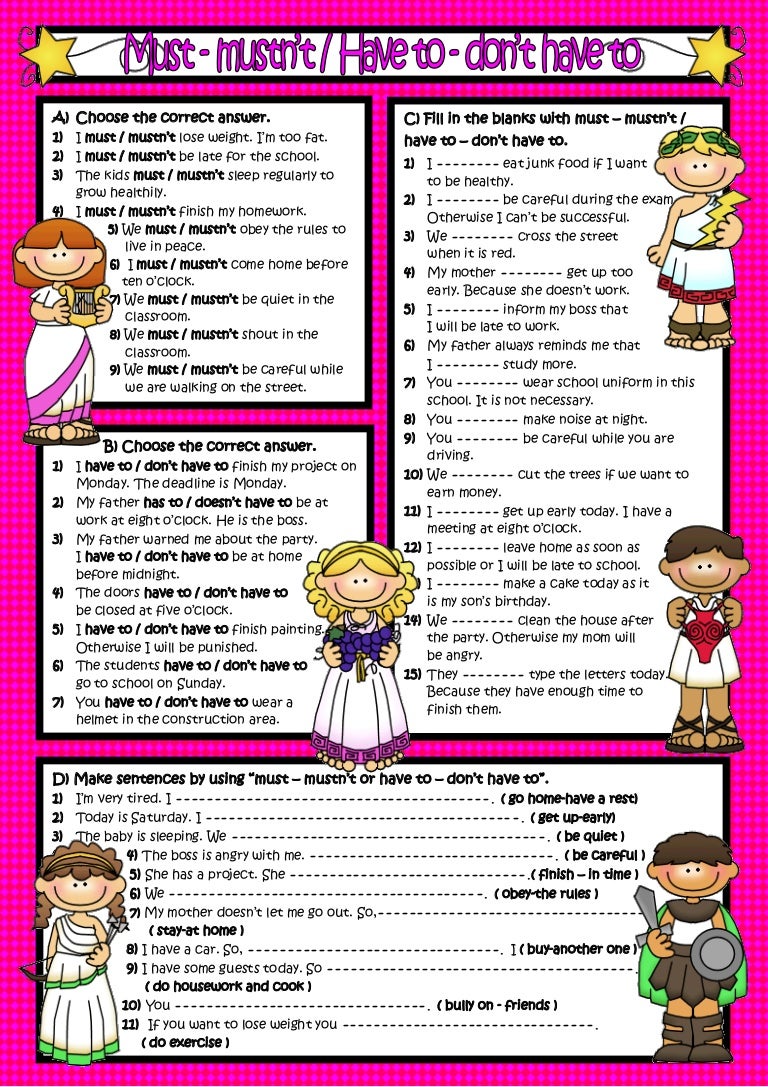



Must Mustn T Have To Don T Have To Exercises




Must Mustnt Can Have Dont Have To Learn English Grammar Lessons Grammar Exercises




Test English Prepare For Your English Exam
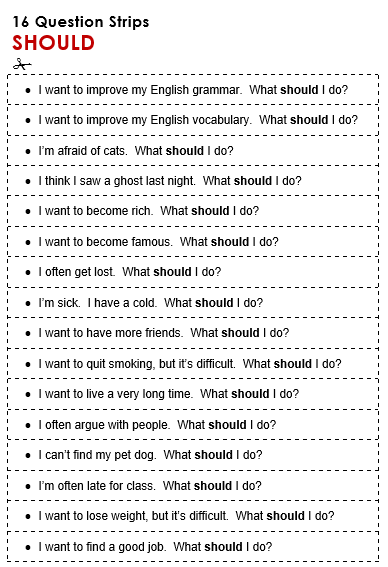



Should All Things Grammar




Must Mustn T Can Have Don T Have To English Esl Worksheets For Distance Learning And Physical Classrooms




Should And Must Examples
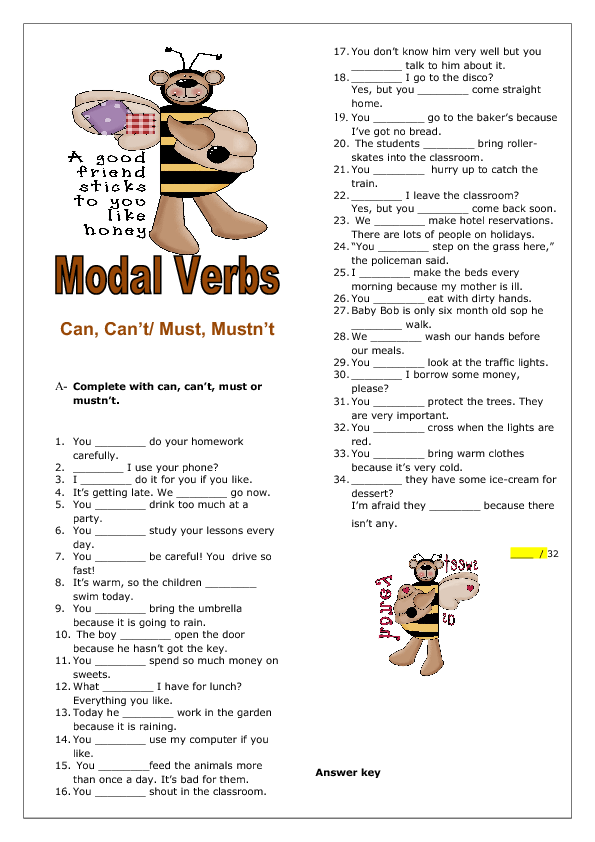



Can Can T Must Mustn T Elementary Worksheet



Fadeibuoni Files Wordpress Com 17 03 Musthaveto2 Pdf




Test English Prepare For Your English Exam




Must Mustn T Have To Don T Have To Worksheet




Test English Prepare For Your English Exam
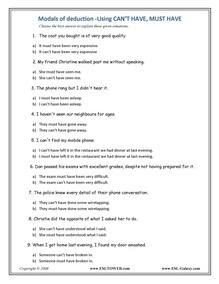



Modal Verbs Printable Modals Exercises And Worksheets




Must Or Have To Worksheets And Online Exercises



English Worksheets Must Have To Worksheets


